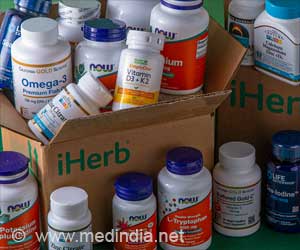The French have a love affair with food, for the Italians a good meal is part of their cultural DNA, and even the British are increasingly particular about what they eat.
The French have a love affair with food, for the Italians a good meal is part of their cultural DNA, and even the British are increasingly particular about what they eat.
But for Germans, food is fuel. They eat to live, not the other way around, with one in two shoppers getting two-thirds of what they eat by stuffing their trolleys in no-frills discounters, much more than many other Europeans.The flip side of this phenomenon is that Germany's food industry is being squeezed hard, and if comments at the world's largest agricultural fair in Berlin are anything to go by, many are up to their necks.
At the "Gruene Woche" ("Green Week") fair in Berlin, which attracts 400,000 visitors annually and which wrapped up Sunday, the talk was of a battle for survival as the discounters wage an aggressive price war.
The five main discount supermarkets (Aldi, Lidl, Netto, Penny and Norma), which together account for 70 percent of Germany's retail food market, have launched 13 price-cutting bonanzas across their range since January 2009.
The head of the federation representing the German food industry, Peter Feller, said his members were suffering from the enormous purchasing power that the no-frills sector is able to bring to bear.
"99.9 percent of our members are small and medium-sized businesses. They are the ones who pick up the bill," he told AFP on the sidelines of the fair.
Advertisement
A 2008 study by consumer research group GFK found that 98 percent of Germans shop at least once a week at a budget supermarket.
Advertisement
"Germany is the only country where you wear Armani and go to Aldi," the saying goes.
"We are worried because German consumers do not seem to understand that if they want to eat well, they need to pay a decent price," said Feller.
Michael Lohse, president of the German Farmers' Federation, said: "The French and the Italians have a relationship with food that is all about enjoyment, freshness and loyalty to local products."
"In Germany, people go straight for the low-cost option. It's completely the wrong way of doing things," he complained.
"Then we encourage our children to do the same and wonder why they are not eating healthily," he added.
But the price war between the discounters continues unabated, with several shops slashing the price for breakfast cereals on the eve of the Gruene Woche -- which Lohse described as a "provocation."
Feller said the "downward spiral" of more vicious price wars leading to further pain for producers was not about to end any time soon.
"We still haven't hit the bottom. I don't know if we'll get there in 2010 or 2011," he said.
The crisis in the food industry has begun to concern politicians in Germany as well.
Speaking at the fair, Agriculture Minister Ilse Aigner said she was "extremely worried" at the "relentless competition" between the discounters which could "weigh on the quality of food and therefore harm consumers."
And it is politicians and regulators that hold the hope for the industry. The government has said it intends to launch a probe into non-competitive practices in several sectors of the economy.
"I could imagine that the food industry would be one of the sectors probed and we will see if it stands up in terms of competition," said Feller.
Source-AFP
THK













